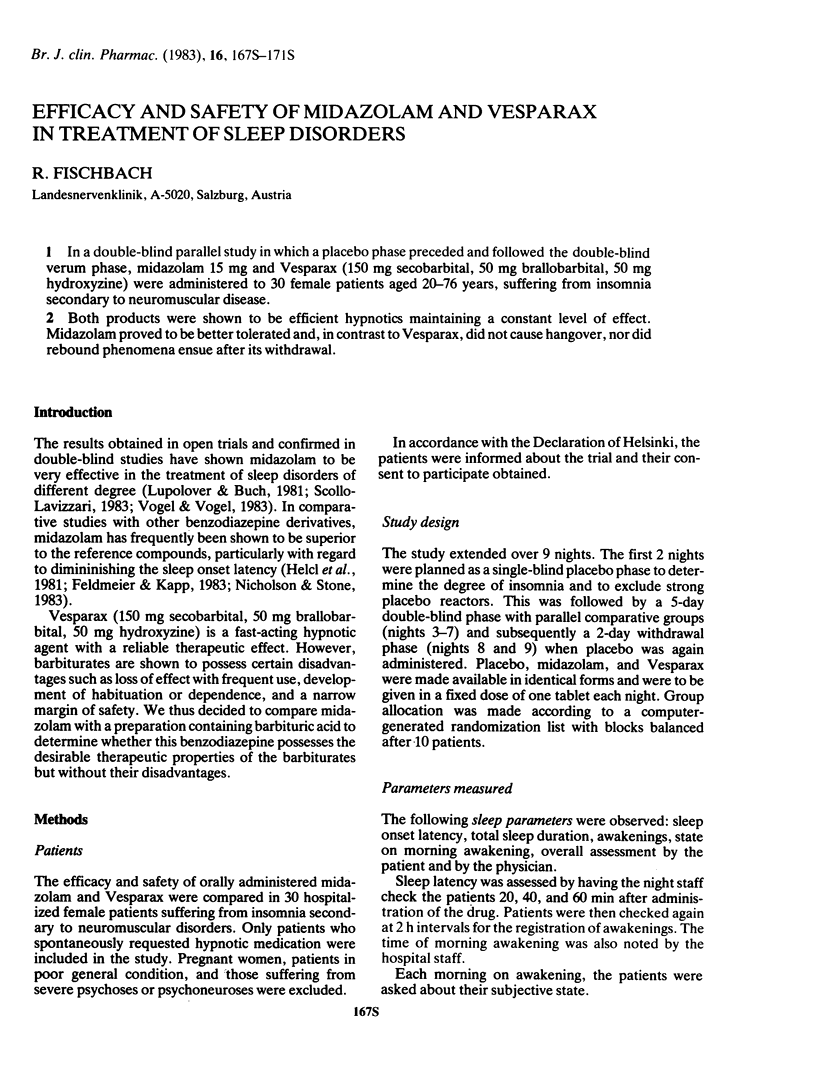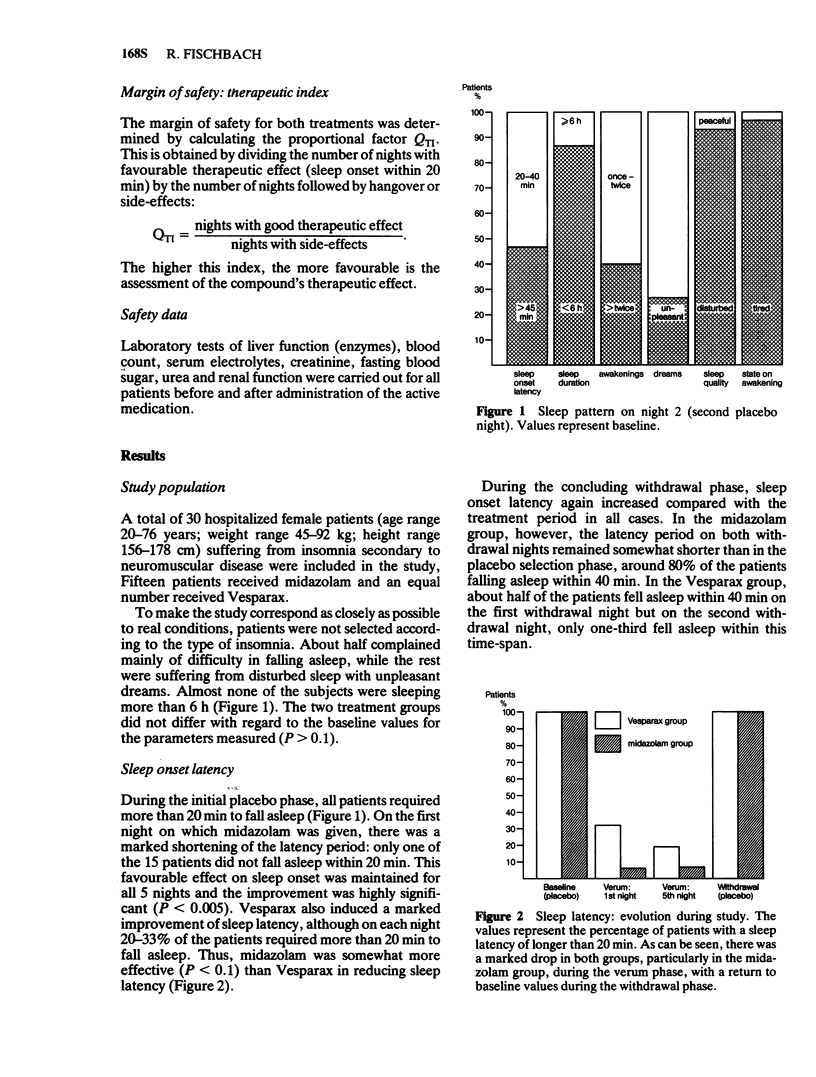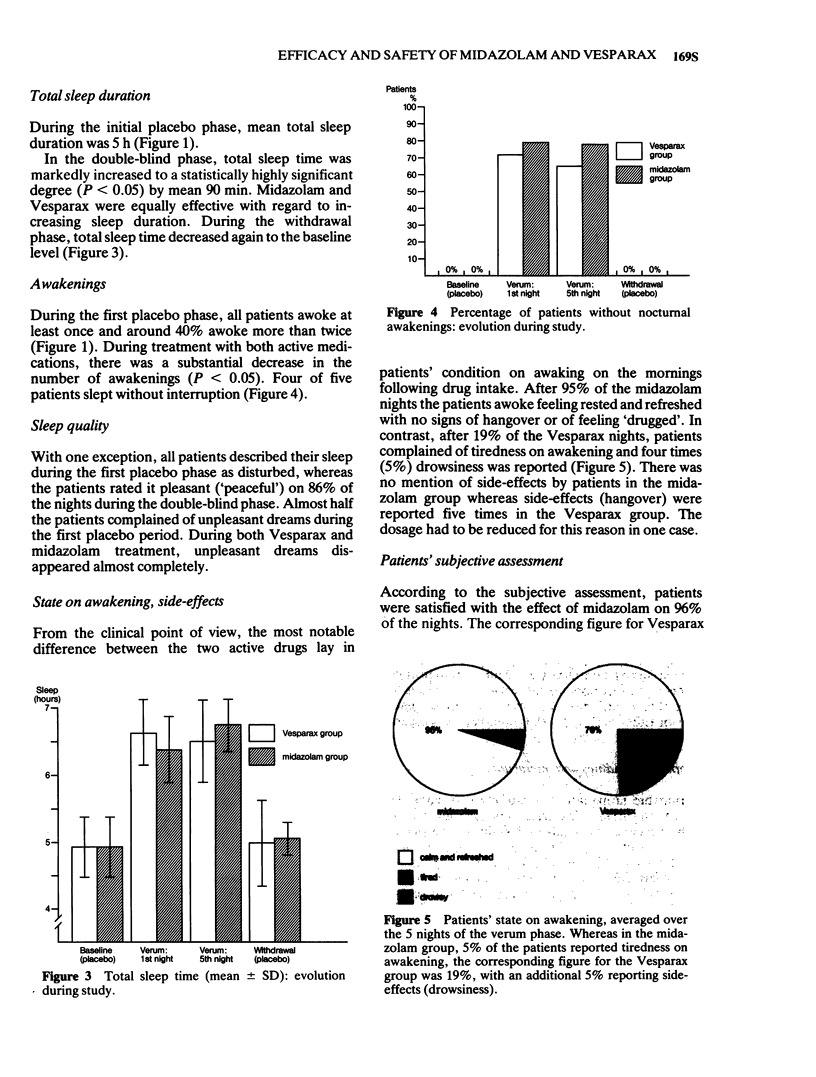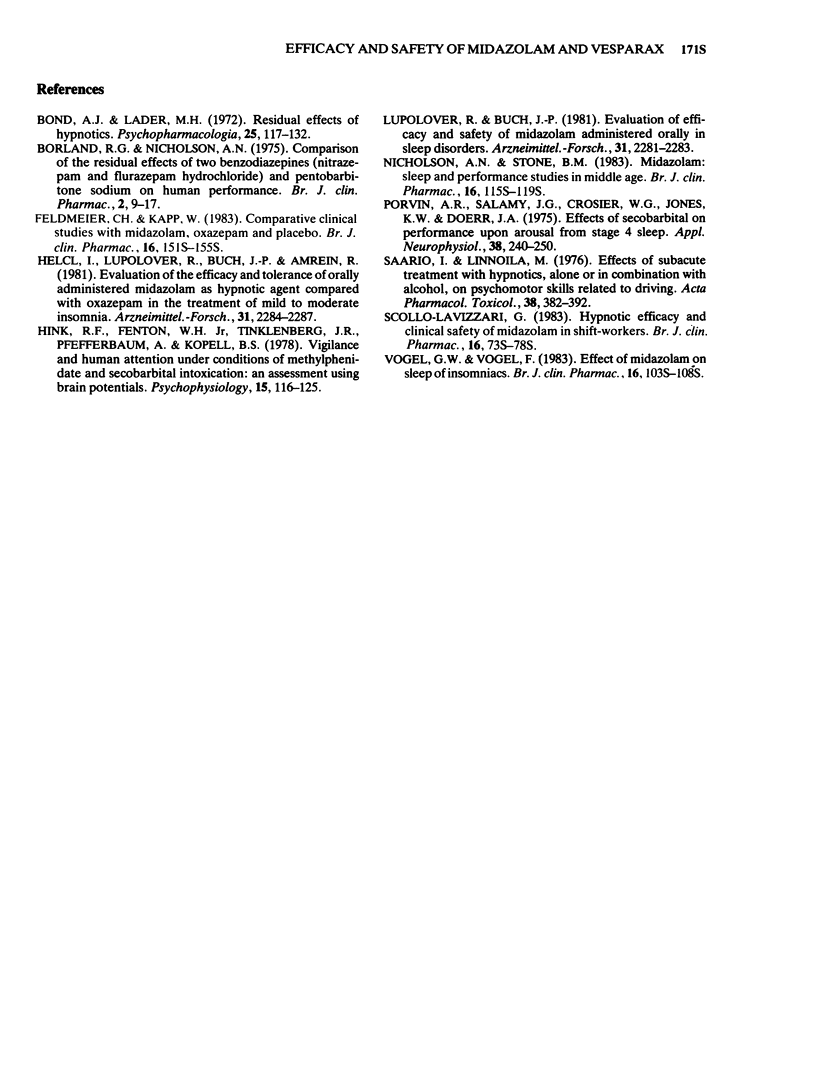Abstract
1 In a double-blind parallel study in which a placebo phase preceded and followed the double-blind verum phase, midazolam 15 mg and Vesparax (150 mg secobarbital, 50 mg brallobarbital, 50 mg hydroxyzine) were administered to 30 female patients aged 20-76 years, suffering from insomnia secondary to neuromuscular disease.
2 Both products were shown to be efficient hypnotics maintaining a constant level of effect. Midazolam proved to be better tolerated and, in contrast to Vesparax, did not cause hangover, nor did rebound phenomena ensue after its withdrawal.
Full text
PDF




Selected References
These references are in PubMed. This may not be the complete list of references from this article.
- Bond A. J., Lader M. H. Residual effects of hypnotics. Psychopharmacologia. 1972;25(2):117–132. doi: 10.1007/BF00423189. [DOI] [PubMed] [Google Scholar]
- Borland R. G., Nicholson A. N. Comparison of the residual effects of two benzodiazepines (nitrazepam and flurazepam hydrochloride) and pentobarbitone sodium on human performance. Br J Clin Pharmacol. 1975 Feb;2(1):9–17. doi: 10.1111/j.1365-2125.1975.tb00465.x. [DOI] [PMC free article] [PubMed] [Google Scholar]
- Feldmeier C., Kapp W. Comparative clinical studies with midazolam, oxazepam and placebo. Br J Clin Pharmacol. 1983;16 (Suppl 1):151S–155S. doi: 10.1111/j.1365-2125.1983.tb02287.x. [DOI] [PMC free article] [PubMed] [Google Scholar]
- Helcl I., Lupolover R., Buch J. P., Amrein R. Evaluation of the efficacy and tolerance of orally administered midazolam as hypnotic agent compared with oxazepam in the treatment of insomnia of mild to moderate severity. Arzneimittelforschung. 1981;31(12A):2284–2287. [PubMed] [Google Scholar]
- Hink R. F., Fenton W. H., Jr, Tinklenberg J. R., Pfefferbaum A., Kopell B. S. Vigilance and human attention under conditions of methylphenidate and secobarbital intoxication: an assessment using brain potentials. Psychophysiology. 1978 Mar;15(2):116–125. doi: 10.1111/j.1469-8986.1978.tb01346.x. [DOI] [PubMed] [Google Scholar]
- Lupolover R., Buch J. P. Evaluation of efficacy and safety of midazolam administered orally in sleep disorders. A dose-finding study. Arzneimittelforschung. 1981;31(12A):2281–2283. [PubMed] [Google Scholar]
- Nicholson A. N., Stone B. M. Midazolam: sleep and performance studies in middle age. Br J Clin Pharmacol. 1983;16 (Suppl 1):115S–119S. doi: 10.1111/j.1365-2125.1983.tb02281.x. [DOI] [PMC free article] [PubMed] [Google Scholar]
- Potvin A. R., Salamy J. G., Crosier W. G., Jones K. W., Doerr J. A. Effects of secobarbital on performance upon arousal from stage 4 sleep. Appl Neurophysiol. 1975;38(4):240–250. doi: 10.1159/000102666. [DOI] [PubMed] [Google Scholar]
- Saario I., Linnoila M. Effect of subacute treatment with hypnotics, alone or in combination with alcohol, on psychomotor skills related to driving. Acta Pharmacol Toxicol (Copenh) 1976 Apr;38(4):382–392. doi: 10.1111/j.1600-0773.1976.tb03134.x. [DOI] [PubMed] [Google Scholar]
- Scollo-Lavizzari G. Hypnotic efficacy and clinical safety of midazolam in shift-workers. Br J Clin Pharmacol. 1983;16 (Suppl 1):73S–78S. doi: 10.1111/j.1365-2125.1983.tb02273.x. [DOI] [PMC free article] [PubMed] [Google Scholar]
- Vogel G. W., Vogel F. Effect of midazolam on sleep of insomniacs. Br J Clin Pharmacol. 1983;16 (Suppl 1):103S–108S. doi: 10.1111/j.1365-2125.1983.tb02279.x. [DOI] [PMC free article] [PubMed] [Google Scholar]



